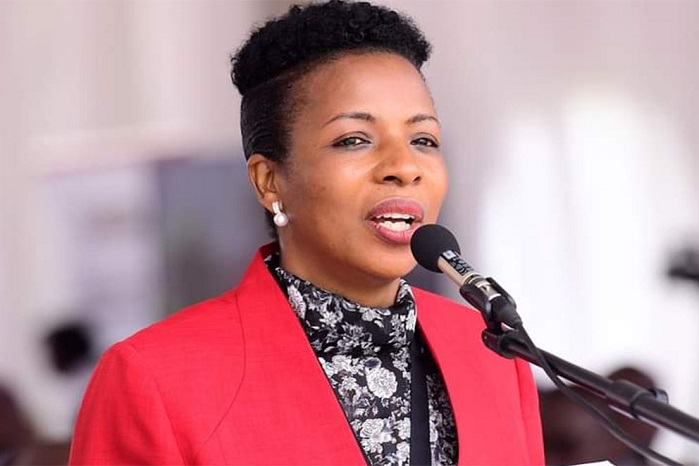
By Dr Ruth Aisha Biyinzika Kasolo
HABARI DAILY I Kampala, Uganda I Its general knowledge that women have become the pillar in Uganda’s fight to economic freedom, since they have entered into many areas of commercial enterprise. This move, largely pegged on Government’s deliberate effort to fight income inequality through affirmative action, has pulled thousands out of poverty.
I can define affirmative action as a series of policies that aims to increase the opportunities provided to underrepresented members of society. Of course women fall in this category due to cultural and social norms which have tended to disregard them during times of decision making.
Being that women in Uganda have been historically marginalised and discriminated against, they needed a policy framework to support them on their advent to financial freedom. The World Bank recently revealed that women in Uganda make up over 48% of the workforce but access only about 30% of available credit.
The Ugandan Constitution, specifically Article 32 provides for affirmative action. It states that the State shall take affirmative action in favor of groups maginalised on the basis of gender, age, disability or any other reason created by history, tradition or custom for the purpose of redressing imbalances that exist against them.
Hence, the constitution puts the burden on the State to correct historical imbalances as opposed to just helping the women.
It goes without saying that policy reforms advanced by the current NRM Government have created a more enabling environment for gender equality, addressing barriers to women’s labor market participation and equalizing access to asset ownership.
Before this move, Ugandan women, who are highly entrepreneurial, had tended to operate much smaller enterprises and would earn less in profits than their male counterparts.
In times of economic strife, women businesses were more likely to close than men’s businesses because they tend to be in more vulnerable sectors and have less savings to serve as a cushion.
But this is now a thing of the past, thanks to affirmative action. We have since realised that women’s economic participation has boosted production in many enterprises, increasing income, savings, and tax contributions.
It has also resulted into creation of resilient women-founded and owned businesses.
Several Government policies have validated the analogy that investing in women’s economic empowerment sets a direct path towards gender equality, poverty eradication and inclusive economic growth.
Collateral-free loans for women
Government has since recognized the fact that inadequate financial services is a key development constraint, particularly for women-owned enterprises and agriculture-based enterprises.
Small and medium enterprises (SMEs) in Uganda, of which women founded businesses are part, face particularly constrained access to finance because large foreign-owned banks focus on corporate and high net-worth individuals.
The funding offered by financial institutions is mostly short-term, making local enterprises more exposed to rollover and interest rate risks, and discouraging them from making longer-term fixed investments.
Anxiety and stagnation
I hereby urge fellow women to shun the tendency of anxiety and avoid stagnation, which would make them miss the fruits so far realised.
There seems to be a wave that threatens to roll back the gains that Ugandan women have made over the years. The achievers in this bracket tend to be complacent, believing that they have arrived.
The fact is that women achievers now need to be role models to the young ladies around us, making them know that what a man can do, a woman can do even better.
Financial inclusion
I would like to applaud the Government for unveiling the National Financial Inclusion Strategy 2023-2028, an initiative that has been developed through a partnership between the Bank of Uganda and the Ministry of Finance, Planning and Economic Development.
Its aim is to bring more people into the bankable bracket. which aims to reduce poverty and promote economic growth through affordable and quality financial services.
The strategy fosters a competitive financial sector through the implementation of policies that create an environment for fostering competitiveness in the private sector, driving economic growth and employment.
It also encourages a savings and investments culture among adults, which drives economic growth and employment.
Additionally, it also emphasises the challenges of underserved segments, such as women, refugees, youth, MSMEs, rural dwellers, and people with disabilities (PWDs).
Closing the gender gap
According to the strategy, there is a need to promote inclusive gender finance in Uganda, where women often face various social and economic barriers that impact their access to financial services, including discrimination, limited access to education and training, lack of collateral, limited legal protection, weak financial infrastructure, and limited digital literacy.
Addressing these barriers is critical not only for promoting gender equality but also for achieving broader development goals such as poverty reduction, economic growth, and improved livelihoods.
In this context, promoting gender-inclusive finance policies and products can be crucial in expanding financial access to women and empowering them to participate meaningfully in economic activities.
The strategy advocates for development and implementation of gender-sensitive regulations and policies, increasing public awareness of the financial services and products available to women.
It also advocates for the need to offer tailored financial training and services to improve women’s financial inclusion, and to address socio-cultural barriers limiting women’s access to financial resources.
I therefore call upon the implementers of this policy to collect sex-disaggregated data to monitor progress towards achieving inclusive gender finance.
I have no doubt that by implementing these measures, Uganda can improve gender equality in the financial sector and pursue its objectives of a sustainable economy.
Funding for women
The Government has also introduced many initiatives through which deserving women would gain access to cheap, user-friendly funding for their initiatives.
One of these is the Generating Growth Opportunities and Productivity for Women Enterprises (GROW) project, a 5-year World Bank funded program aimed at supporting women entrepreneurs transition from micro to small and from small to medium enterprises.
It is implemented by the Ministry of Gender, Labour, and Social Development and the Private Sector Foundation Uganda (PSFU), on behalf of the government of Uganda.
Since Uganda is struggling to provide job opportunities for the large number of graduates who leave various institutions every year, which amounts to nearly a million, GROW seems to the clear answer to this dilemma.
It’s also a clear answer to President Yoweri Museveni’s call for an intervention that focuses on empowering youth, women, and the elderly to acquire the skills needed to start their businesses, promote entrepreneurship, create jobs, and improve household income.
The credit facility therefore is purposed to empower struggling women entrepreneurs with accessible and affordable expansion and growth capital at between 10%-10.5% annual interest.




